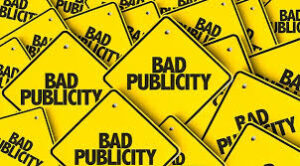 Public relations professionals take note: Crisis management is not the mastery of spin, but preventing a PR nightmare. Read the following tips from communications consultant Allan Bonner, a specialist in crisis management and media training, and then ask yourself whether or not your company or PR firm is prepared for the crisis the just might be around the corner.
Public relations professionals take note: Crisis management is not the mastery of spin, but preventing a PR nightmare. Read the following tips from communications consultant Allan Bonner, a specialist in crisis management and media training, and then ask yourself whether or not your company or PR firm is prepared for the crisis the just might be around the corner.
“You have to prepare for the unthinkable ahead of time, not when it strikes,” Bonner says. Bonner’s firm has trained more than 15,000 corporate and government officials from 135 countries. “[The events of] Sept. 11, 2001, demonstrated that modern crisis management in public relations is much more complex than polling, focus groups, or op-ed pieces. It’s diagnostic and multifaceted. You can’t be blamed for an accident beyond your control, but you can be faulted for not seeing the warning signs or taking steps to lessen the impact.”
The author of the book Doing and Saying the Right Thing — Professional Risk and Crisis Management, Bonner says public relations firms and business owners need to re-think the role of crisis management. Defining it as a day-to-day operation to prevent crises from occurring can be the acid test of your public relations strategy, notably the effectiveness of client preparation and emergency contingencies.
“When controversy happens, it’s hard [for you and the client] to formulate the right message when you’re tired and distraught, and it’s preposterous to withhold comment until you do. The best time to prepare for crisis is now!, when your mind is clear, and can codify information into systems and methodologies.”
Bonner uses the term “SOCKO” — Strategic Overriding Communications and Knowledge Objectives — to identify tangible risks and create clear messages, grouping solutions into strategies, attitudes, behaviors, goals, hopes, aspirations, capabilities, and training.
“As crisis emerges, answers are rarely available. However, you can prepare effective comments regarding how you will handle it. For instance, responding: “No one has the answers to these questions at this time, but here’s what we are doing to find them,” will communicate attentive leadership, a far cry from ‘no comment’ or speculative discussion.”
To minimize incidents for alarm, public relations firms and their consultants should work with client staff to gain an in-depth understanding of operations and industry regulations. Broadening the knowledge-base beyond media relations will help you identify the specific risks faced, making you more capable to advise your client when — and when not — publicity is merited.
One crisis management strategy is isomorphic learning, where dissimilar systems are compared to find common traits. Comparative research can be made with geographic, cultural/cross-cultural, and historical accounts. Bonner says learning from the successes and failures of similar scenarios helps determine the current risks involved, and what live simulations will best test your proposed solutions.
“Look at the space shuttle Challenger explosion,” says Bonner of the 1986 tragedy. “Challenger demonstrates: 1.) things may work well in the laboratory, but not always in the real world; 2.) to find real world factors you have to look for them; 3.) many times, if you look back you can see patterns of events.
Bonner continued saying that specific risk assessment requires input from relevant crisis management experts. However, he says public relations firms and company owners should be well prepared prior to any consultation to best comprehend the insights and projections.
In small and early stage ventures, Bonner says greater vulnerability for crisis situations exists on a daily basis.
“Many entrepreneurs are lax to adhere to established management principles or seek out weaknesses in their operation. By ignoring the warning signals, the risk of operating crises and embarrassing situations in the public eye increases.”
Bonner concluded that when faced with crisis, public relations firms should address it promptly. “Doing so may exhaust the year’s promotional budget, but good public affairs today means your client is more likely to be in business next year.”
This article, written by Adam Bello, originally appeared in PR Fuel (https://www.ereleases.com/prfuel), a free weekly newsletter from eReleases (https://www.ereleases.com), the online leader in affordable press release distribution. To subscribe to PR Fuel, visit: https://www.ereleases.com/prfuel/subscribe/.
